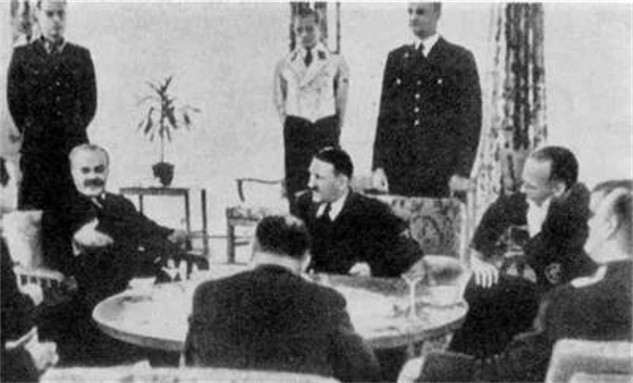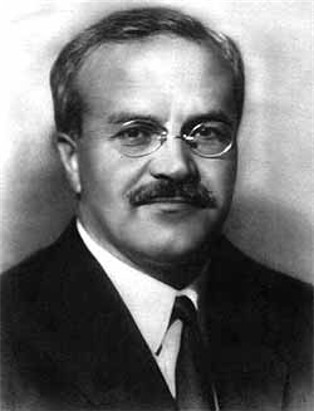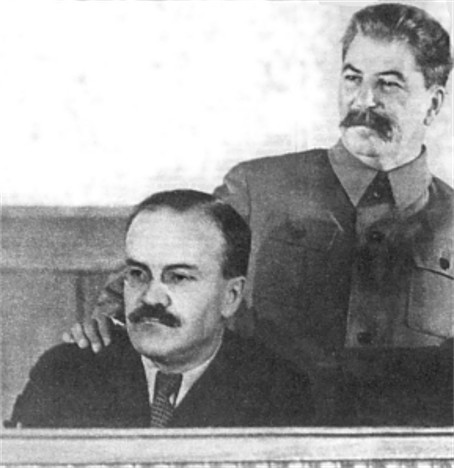Molotov, Viacheslav
Molotov, Viacheslav (né Skriabin), b 9 March 1890 in Kukarka, Viatka gubernia, Russia, d 9 March 1986 near Moscow. (Photo: Viacheslav Molotov.) Bolshevik party functionary and Soviet diplomat. As secretary of the Communist Party (Bolshevik) of Ukraine Donetske Gubernia Committee in 1920, he supervised the suppression of the Workers' Opposition in the Donbas. After being promoted to the office of first secretary of the CP(B)U (November 1920 to March 1921) he implemented Moscow's policy of War Communism, purged the CP(B)U, and waged war on the anti-Soviet partisan movement. He was rewarded with appointments to the CC of the Russian Communist Party (Bolshevik) and its Politburo. A servile supporter of Joseph Stalin after Vladimir Lenin's death, he became the secretary of the Moscow Party Committee and a full Politburo member in late 1925. After purging the Moscow organization of Stalin's opponents in 1928–30, he was appointed chairman of the USSR Council of People's Commissars and held the post during the terror and purges until 1941. At the Third CP(B)U Conference in Kharkiv in 1932, he rejected Ukrainian entreaties to lower the excessive grain-delivery quotas which would lead to the Famine-Genocide of 1932–3. In 1937 he played a key role in purging the CC CP(B)U. As commissar of foreign affairs in 1939–49, he negotiated the Molotov-Ribbentrop Pact and then the Soviet alliances with the United States and Great Britain. At the 1945 Yalta Conference he proposed that the Ukrainian SSR become a member of the United Nations. After Stalin's death he again served as foreign minister (1953–6) and as minister of state control until June 1957, when he was stripped of all offices for working with the ‘anti-Party group’ to depose Nikita Khrushchev. Later he served as ambassador to Mongolia and Soviet delegate to the International Atomic Energy Agency in Vienna (1960–1). In 1964 he was expelled from the Communist Party of the Soviet Union, and retired from political life.
[This article originally appeared in the Encyclopedia of Ukraine, vol. 3 (1993).]

.jpg)

